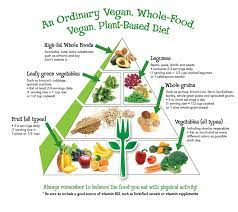About vegetarian health ...
About vegetarian health ...
A well-planned vegetarian diet can provide all the nutrients needed for good health. Some key points to consider for a healthy vegetarian diet include:
Include a variety of plant-based foods such as fruits, vegetables, whole grains, legumes, nuts, and seeds to ensure adequate intake of essential nutrients.
Make sure to get enough protein from sources such as legumes, tofu, tempeh, seitan, or dairy and dairy alternatives (for lacto-ovo vegetarians).
Pay attention to getting enough iron, calcium, and vitamin B12, as these nutrients can be lacking in a vegetarian diet. Good sources of iron include legumes, tofu, and fortified cereals, while calcium can be found in dairy alternatives, kale, and fortified orange juice. Vitamin B12 can be obtained from fortified foods or supplements.
Use healthy cooking methods such as grilling, roasting, or stir-frying to reduce the use of added fats.
Remember, it is always important to seek the advice of a healthcare professional before making any major dietary changes.
Incorporate healthy fats such as olive oil, avocado, and nuts into your diet.
Limit your intake of highly processed foods, sugar, and saturated fat.
Drink plenty of water to stay hydrated.
Consider vitamin and mineral supplements if needed, especially for vitamin B12, iron, and calcium.
Experiment with different cuisines and recipes to ensure a varied and delicious diet.
Seek advice from a registered dietitian if you have specific dietary needs or health concerns.
It's important to note that a well-planned vegetarian diet can provide numerous health benefits, including a reduced risk of heart disease, certain cancers, and type 2 diabetes. However, it's still important to make healthy food choices and have a balanced diet to maintain good health.



Good
ReplyDelete